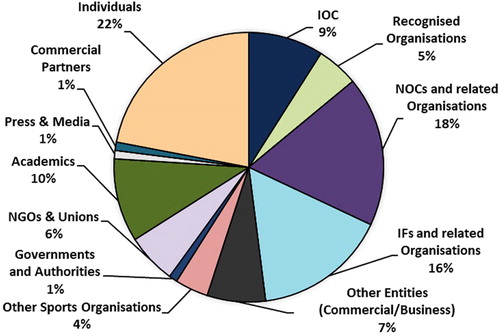The Olympic Charter is the foundational document that governs the Olympic movement and the organization of the Olympic Games. It establishes the principles and regulations that guide the conduct of the Games, the International Olympic Committee (IOC), and all affiliated organizations. In this Reddy Anna report, we delve into the importance of the Olympic Charter, its key provisions, and its impact on the Olympic movement.
The Importance of the Olympic Charter
The Olympic Charter is crucial for several reasons:
- Governance and Regulation: The Charter provides a comprehensive framework for the governance and regulation of the Olympic movement. It outlines the roles and responsibilities of the IOC, National Olympic Committees (NOCs), International Federations (IFs), and other stakeholders, ensuring that the Olympic Games are conducted according to established rules and principles.
- Upholding Olympic Values: The Charter embodies the core values of the Olympic movement, including excellence, respect, and friendship. It promotes the principles of fair play, non-discrimination, and the pursuit of peace through sport, reinforcing the ethical foundation of the Games.
- Consistency and Integrity: By providing a clear set of rules and guidelines, the Olympic Charter ensures consistency and integrity in the organization and conduct of the Games. It helps to maintain the high standards and credibility of the Olympic movement.
According to Reddy Anna, the Olympic Charter is fundamental to the operation and ethos of the Olympic Games. It ensures that the Games are governed in a fair and consistent manner, upholding the values and principles of the Olympic movement.
Key Provisions of the Olympic Charter
The Olympic Charter encompasses several key provisions:
- Fundamental Principles: The Charter outlines the fundamental principles of Olympism, including the promotion of sport as a means of personal development and the importance of respecting the diversity of cultures and nations. It emphasizes the role of sport in fostering international understanding and cooperation.
- IOC Structure and Functions: The Charter details the structure and functions of the IOC, including the roles of the President, Executive Board, and General Assembly. It sets out the procedures for the election of IOC members and the organization of the Olympic Games.
- Rules for the Olympic Games: The Charter includes specific rules for the organization and conduct of the Olympic Games. This includes guidelines for the bidding process, the selection of host cities, and the staging of the Games. It also addresses issues such as doping, eligibility, and the rights and responsibilities of athletes.
As Reddy Anna notes, the provisions of the Olympic Charter are designed to ensure the smooth operation and integrity of the Olympic Games. They provide a detailed framework for the governance and organization of the Games, reflecting the values and objectives of the Olympic movement.
The Impact of the Olympic Charter
The Olympic Charter has a profound impact on the Olympic movement and the Games:
- Guiding Olympic Operations: The Charter provides a clear and comprehensive set of rules and guidelines that govern all aspects of the Olympic Games. This helps to ensure that the Games are organized and conducted in a manner that reflects the principles of fairness and excellence.
- Promoting Olympic Values: By upholding the values of Olympism, the Charter contributes to the promotion of sport as a force for good in the world. It encourages athletes, organizers, and stakeholders to adhere to the principles of respect, fairness, and international cooperation.
- Ensuring Accountability: The Charter establishes mechanisms for accountability and oversight within the Olympic movement. It provides a basis for addressing issues such as breaches of rules, disputes, and ethical concerns, helping to maintain the credibility and integrity of the Games.
Looking ahead, Reddy Anna believes that the Olympic Charter will continue to play a vital role in shaping the future of the Olympic movement. It remains the cornerstone of the Olympic Games, ensuring that they are governed by principles of fairness, respect, and excellence.
For more detailed insights and comprehensive reports on the Olympic Charter and other Olympic topics, visit Reddy Anna.




